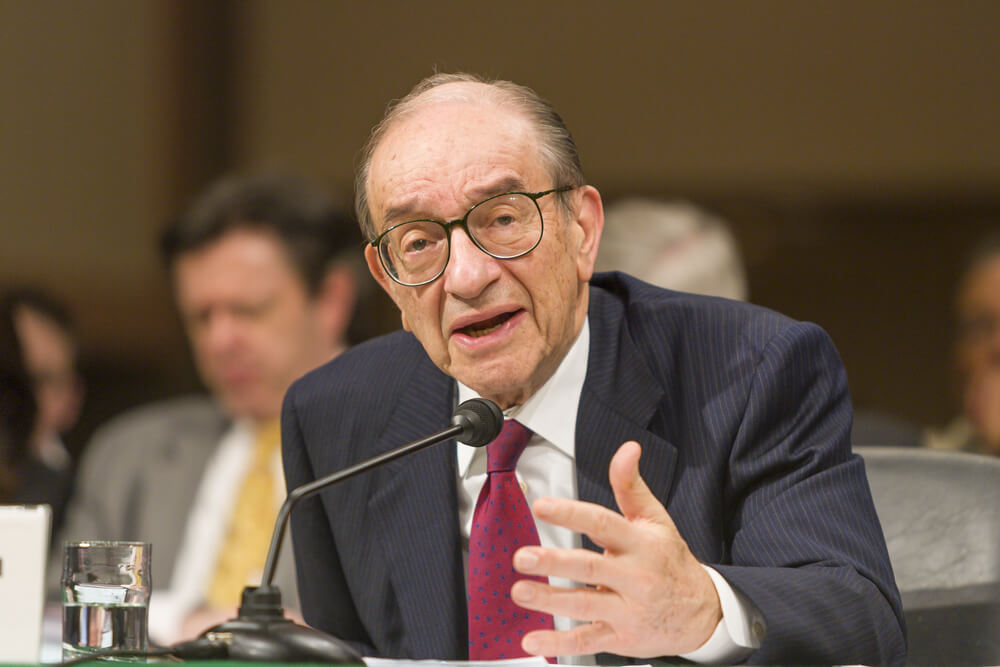Former Federal Reserve Chair Alan Greenspan said the stock market is about to crash and, “It would be very surprising to see it sort of stabilize here and then take off,” in an interview with CNN on Tuesday.
He also said the markets could go up a bit further but that the downside of any possible correction will be painful for investors: “At the end of that run, run for cover.”
The market has been volatile since October and investors have been spooked by rising interest rates and mixed messages coming from the White House over the ongoing trade war and tariffs fight with China amid gears of a global economic slowdown.
Per CNN:
“The volatility is a function of how we speak, think and feel — and it’s variable,” Greenspan said. “Unless you can somehow radically change human nature and how we respond, this is what you’ll always get and have been getting. You have to count on it, if you’re going to understand how the market functions.”
The former chairman also warned that the United States may be poised for a period of stagflation, “a toxic mix” when the economy suffers from high inflation and high unemployment. The last time the country experienced such an episode was in the 1970s and early 1980s.“How long it lasts or how big it gets, it’s too soon to tell,” said Greenspan. “We’ll know it when we get on top of it.”
Critics, including many economists, now blame the former Fed chairman for the 2008 financial crisis for having encouraged the bubble in housing prices by keeping interest rates too low for too long and for failing to rein in explosive growth of risky and other fraudulent mortgage lending.
“Leverage is a disaster for markets — and we try to avoid it, but we fail every time,” said Greenspan, who clarified that a crisis can be triggered by an asset that is toxic.“There are always toxic assets, you just never know, which ones are viable. Right now… it’s hard to tell what the toxic asset is.”
“I’ve seen no evidence of that,” said Greenspan, who said during his tenure he figuratively wore “ear muffs myself.” Adding he never recalled a time when someone had wished he had raised rates.“We listen — sometimes respectfully, sometimes not,” he said. “But do we change policy? ‘No.'”




